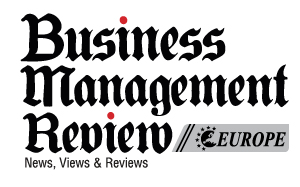MARCH 2024BUSINESSMANAGEMENTREVIEW.COM8THE POWER OF DATA: HOW TECHNOLOGY IS SHAPING INTERNAL AUDIT AND COMPLIANCEBy Andre Cruz, AI & Compliance Director, AlubarIn the information age, data are valuable assets that drive critical business decisions. However, mere data collection is not enough; it is the transformation of this data into actionable insights that provides a significant competitive edge. In this scenario, technology plays a vital role in internal audit and compliance, empowering organizations to explore the true potential of their data.André Cruz, Internal Audit and Compliance Director at Alubar Global Management, vividly recalls how technology revolutionized the way internal audits are conducted. "I clearly remember that 15 years ago one of the audit tests we conducted relied on the printing of two reports and we spent days manually searching for differences or irregularities in the comparison between them, marking with a red (X) the inconsistencies or with a green () on the correct transactions. It was a very laborious process, taking days, sometimes weeks, to test the transactions of a single month. A few years later we were already able to perform this same test using software for data reading and analysis, which could be in different formats or files, by cross-referencing and processing this data in a massive way, and, with a few clicks, we obtained a reliable result, regardless of whether the scope was 1 day or 1 decade, as it would take practically the same time to process. It was an exponential gain. At that point, the test took a few hours to be completed. Now, we can do everything with just one click, as the tests are already properly parameterized with scripts that will be processed through the new features of robotization. Currently, artificial intelligence is doing things we could never imagine. It is already possible to plan for new audit tests to be suggested and processed by the computers themselves and for the results to be automatically reported to the auditors, as the tools can already understand the data, interpret it, and seek out what is outside of controls, policies, or the pattern of the other data. It's quite scary, but still intriguing and useful. We don't know where this will lead."This revolution highlights how the functions of internal audit and compliance are evolving. The ability to conduct more comprehensive and efficient audits is one of the main implications of technology. André continues, "In the past, it was unthinkable to carry out audits that spanned decades of data effectively, but now, with the capabilities of data analysis and artificial intelligence, we can assess an organization's history in detail with precision and speed."The role of technology in internal audit is not limited to the analysis of historical data. Artificial intelligence (AI) is becoming a powerful tool in identifying emerging risks and future trends. The ability of this tool to understand data, interpret it, and detect what is outside the established patterns is transformative.Andre Cruz
< Page 7 | Page 9 >
< Page 7 | Page 9 >


